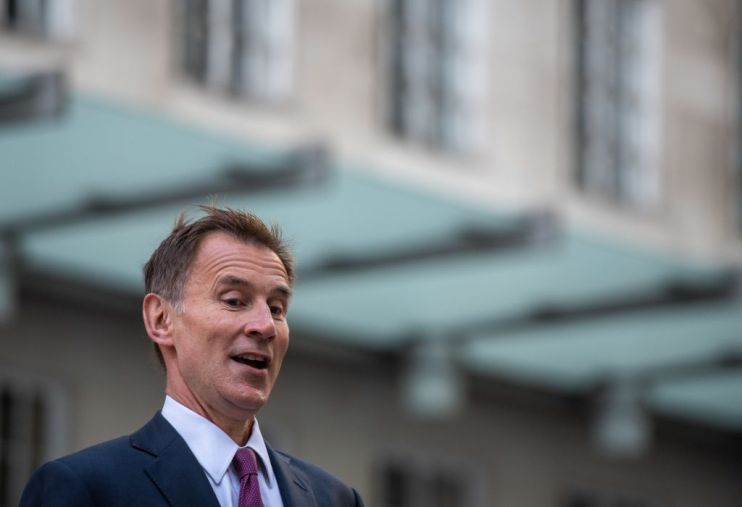VAT threshold raised to £90,000 in boost for small businesses – but pubs still feeling the pinch

Hard-pressed small business owners were thrown a lifeline on Monday after the government rolled out an increase to the VAT threshold.
The measure, which was previously announced at the Spring Budget, means the threshold at which businesses have to pay VAT has been raised from £85,000 to £90,000.
Speaking at the time, Chancellor Jeremy Hunt said the move would help “cut taxes and help them [small businesses] grow”.
The previous threshold of £85,000 had faced criticism for putting pressure on already squeezed small businesses as they navigate high inflation and a squeeze on consumer spending,
Tina McKenzie, policy chair at the Federation of Small Businesses (FSB), praised the decision, describing it as a “big day” for the sector.
She said: “This is a big day for small businesses. FSB has campaigned for decisive action to increase the VAT threshold, freeze business rates, and extend the retail, hospitality, and leisure discount and we’re pleased to see these come in today.
“April 6 will also mean a cut in National Insurance for the self-employed – the government is right to take forward practical, impactful measures that help small businesses drive growth in all of our local communities.”
Meanwhile, Gareth Davis, exchequer secretary to the Treasury, said the government was “backing Britain’s small businesses”.
He said: “We’re rewarding work and backing Britain’s small businesses– the lifeblood of the economy and beating heart of communities – with support on VAT and business rates.”
Monday’s announcement also marked the fourth consecutive year the small business rates multiplier has been frozen.
The measure is part of the £4.3bn business rates support package announced in the Autumn Statement that includes the 12-month extension of the 75 per cent relief for 230,000 Retail, Hospitality and Leisure (RHL) properties, which also came into force today.
Kate Nicholls, chief executive of UKHospitality, told City A.M. the extension of business rates relief has been a “lifeline” for pubs and hospitality as they navigate the cost of living and energy crisis.
“Undoubtedly, there are many small businesses across the sector that are still struggling,” she added.
“Notwithstanding how much support that [business rates relief] gives us you still got £3.2bn pound hits in the sector, as a result of national living wage increases that businesses are having to absorb at this point in time.”
It comes as the energy bills price cap falls by more than £200 and the National Living Wage rises by just over £1.02 and extends to those aged 21 and up.
Other measures taking effect this week include eligible parents of two-year-olds getting 15 hours’ free childcare; housing benefit rising; and film studios getting a 40 per cent business rates cut.
However, it also hits as new tariffs on UK exports to Canada begin; while council tax, mobile, broadband and water bills, dental check-ups and air passenger duty are all set to cost more.
Later this week, the price of a first class stamp will rise to £1.35, while the salary threshold for skilled workers will increase and national insurance will be cut by two per cent.
Capital gains tax will also fall and the child benefit cut off threshold will rise – while income tax bands remain frozen, vehicle excise duty rises and benefits and pensions rise on April 8.
Prime Minister Rishi Sunak said: “Today’s measures could save households around £3,850 a year on average which – taken with the upcoming cuts to NICs – will put more money in their pockets to help ignite the economy.
“Although recent years have tested our resolve, we have not bowed. We have stuck to the plan, more than halved inflation, and set us on a path to growth.”
He added: “Because of this determination, we find ourselves in a new economic moment and – thanks to our bumper package of economic reforms coming into force today – 2024 is set to be the year Britain bounces back.”